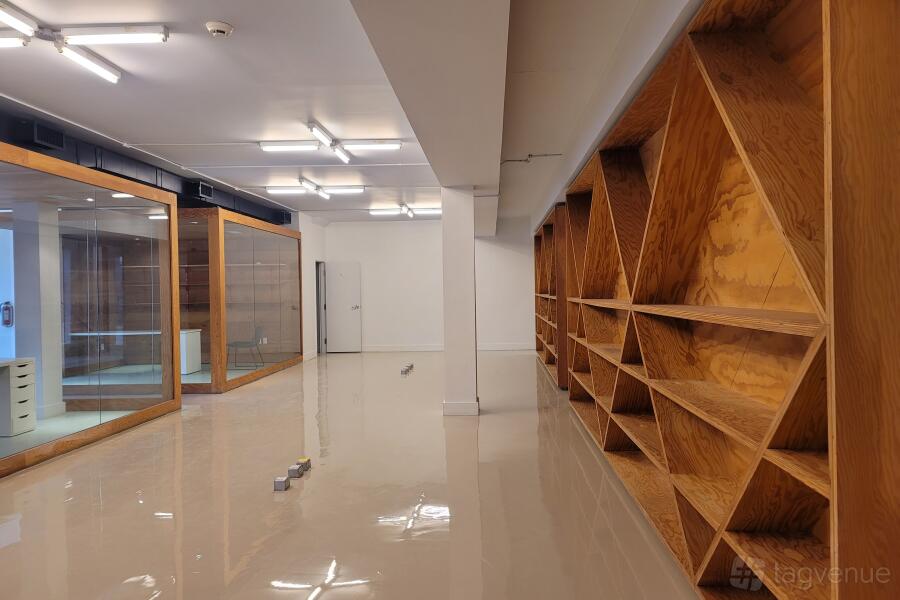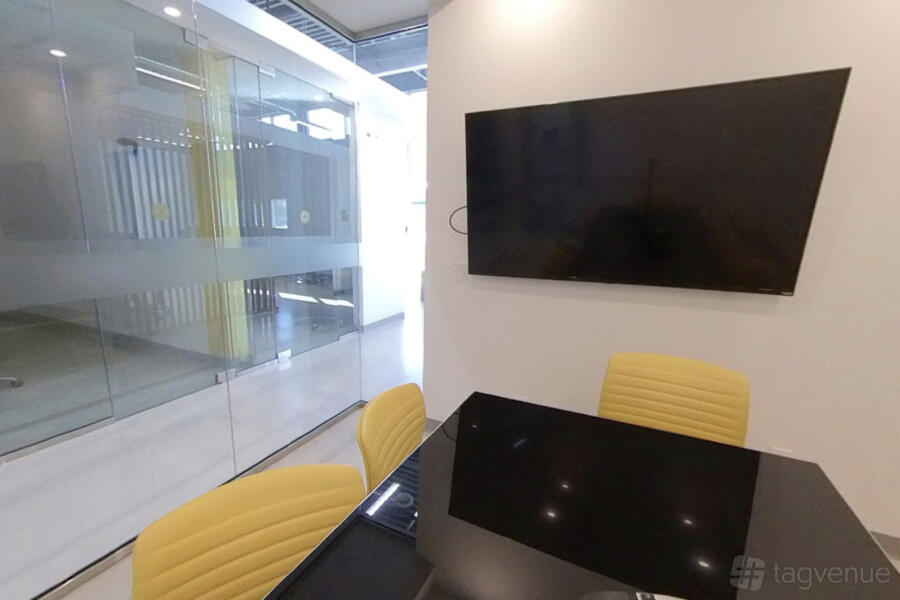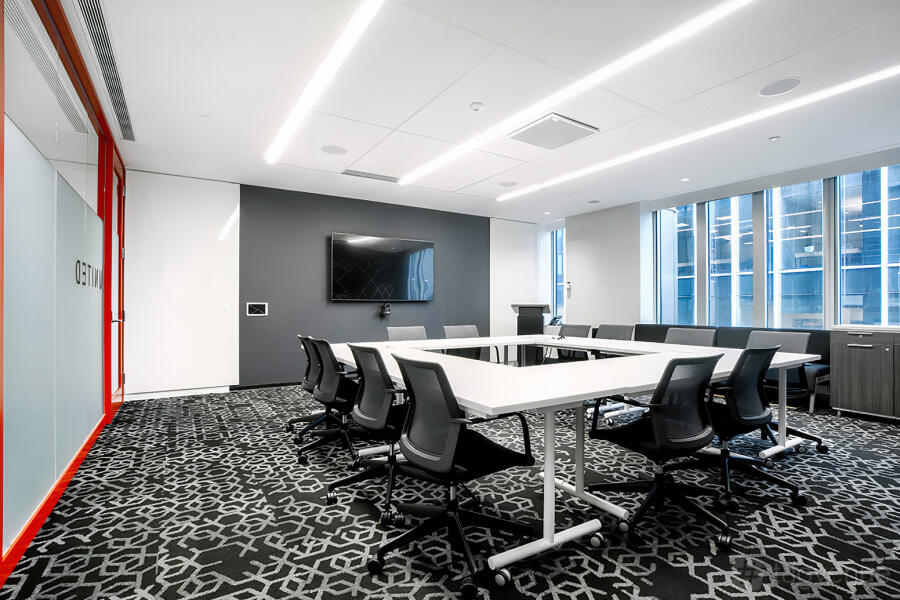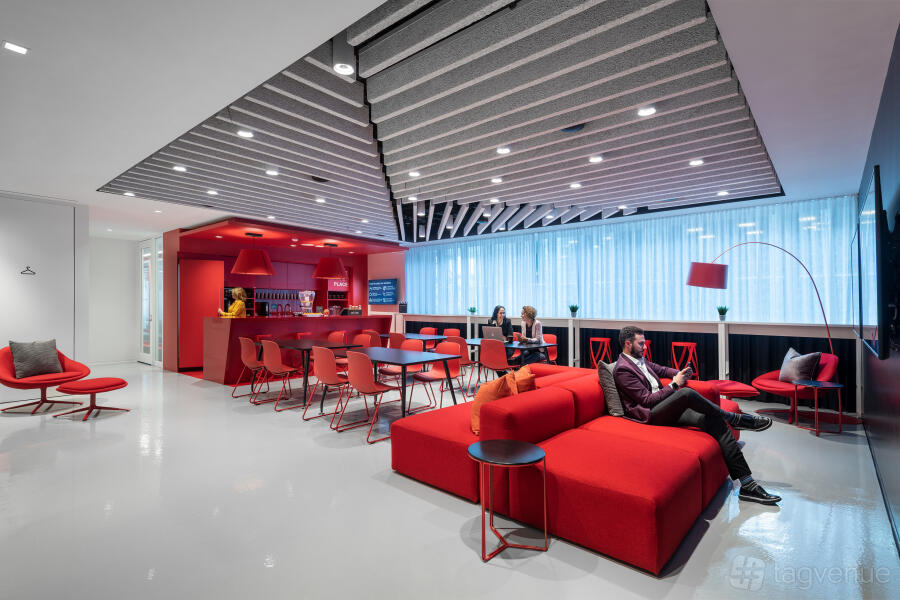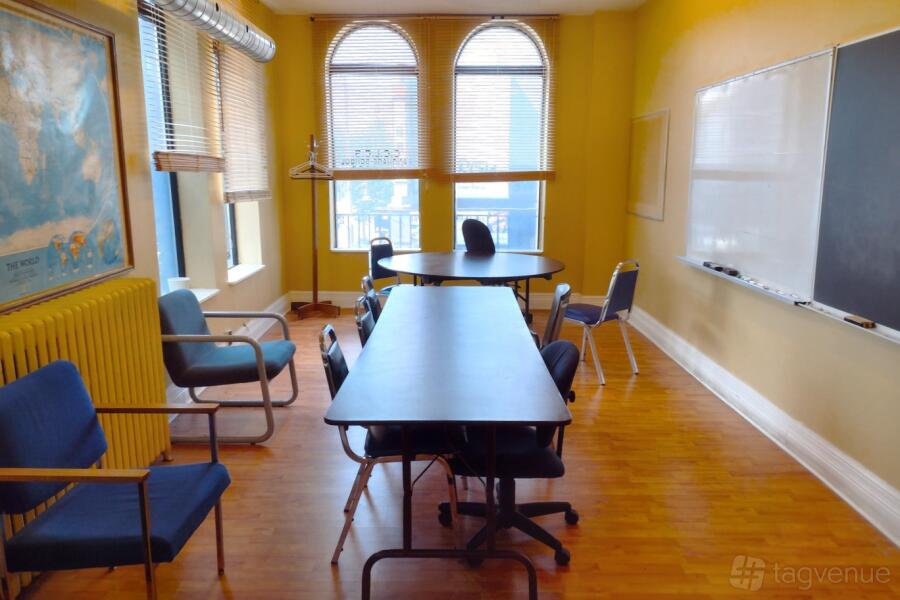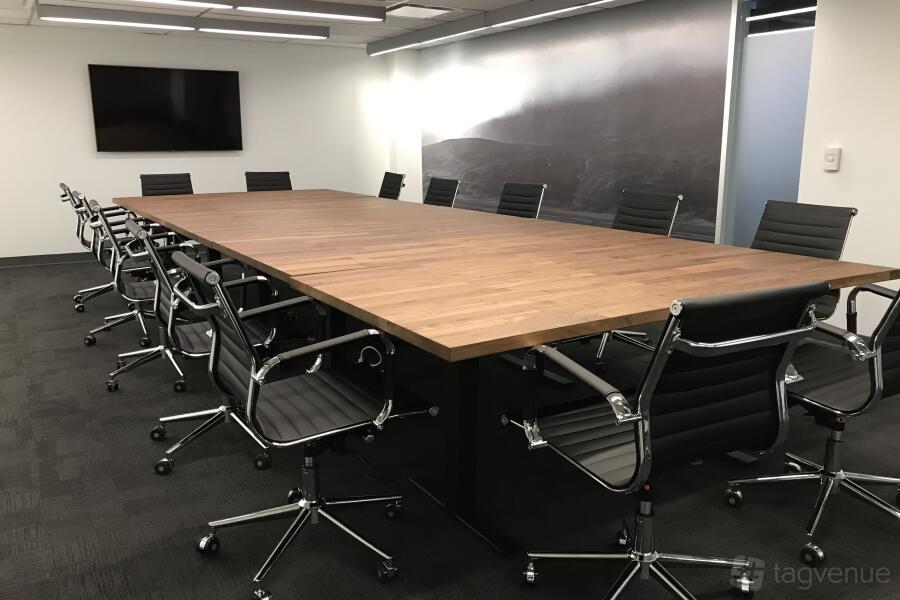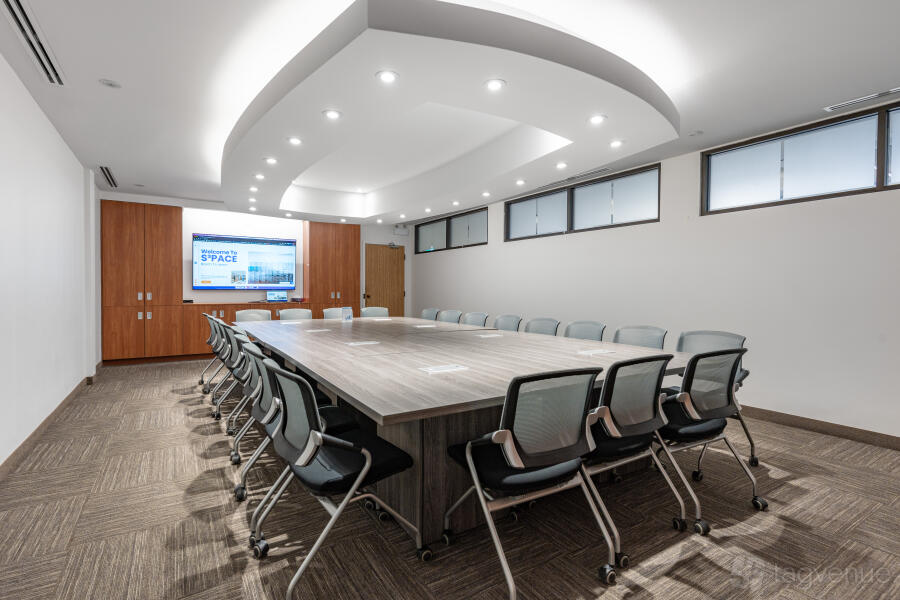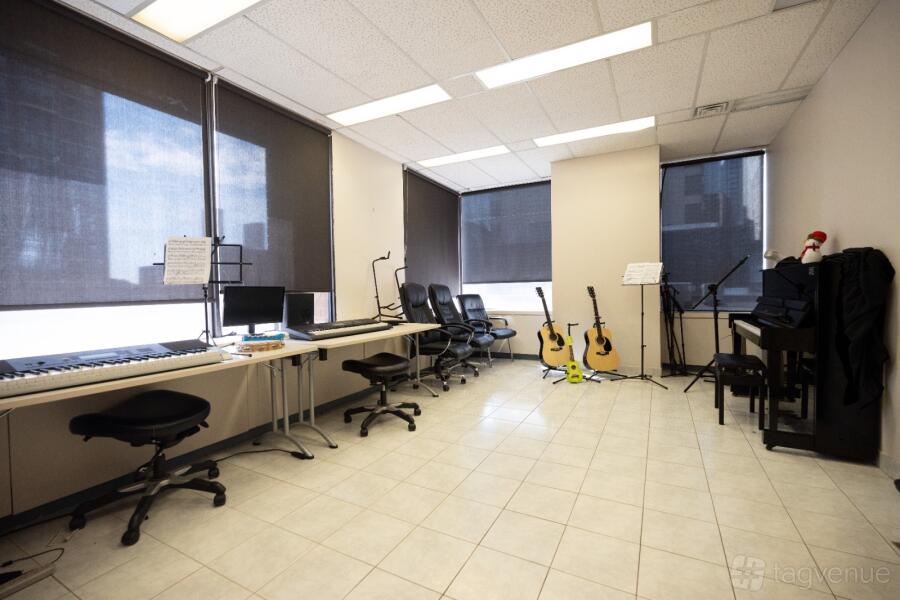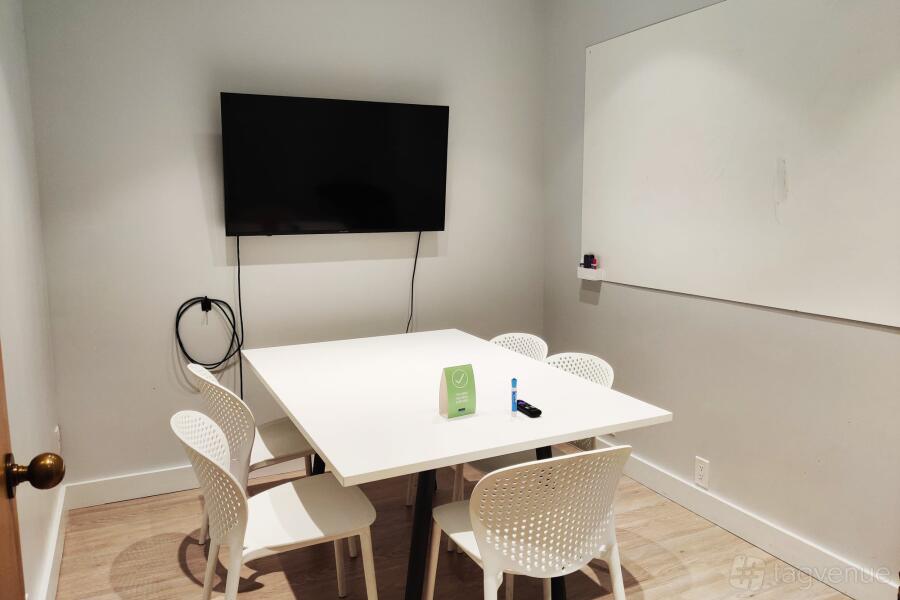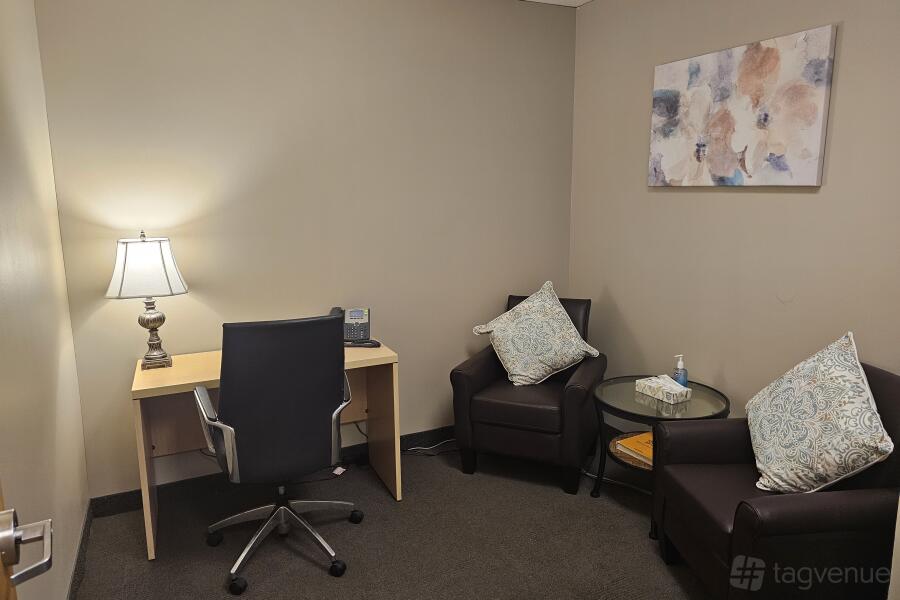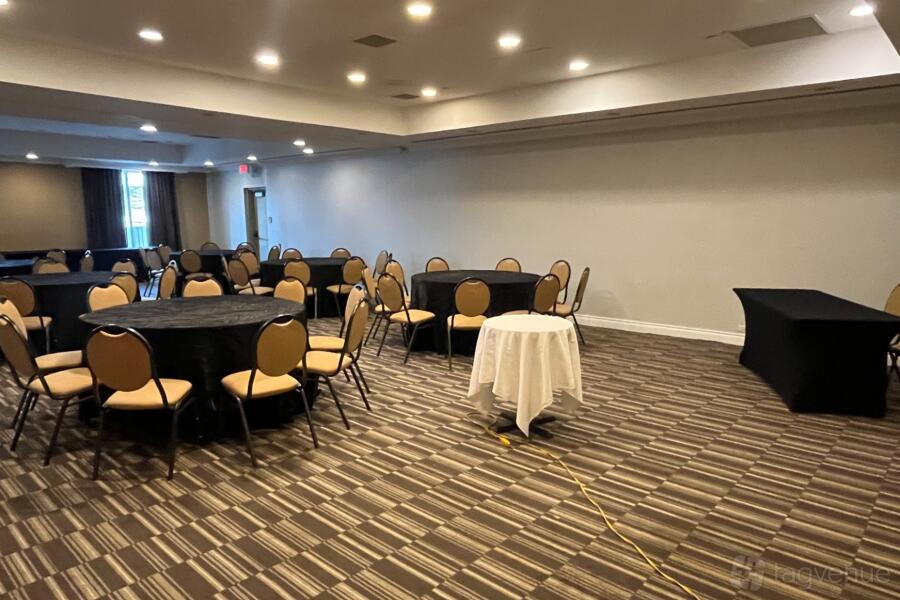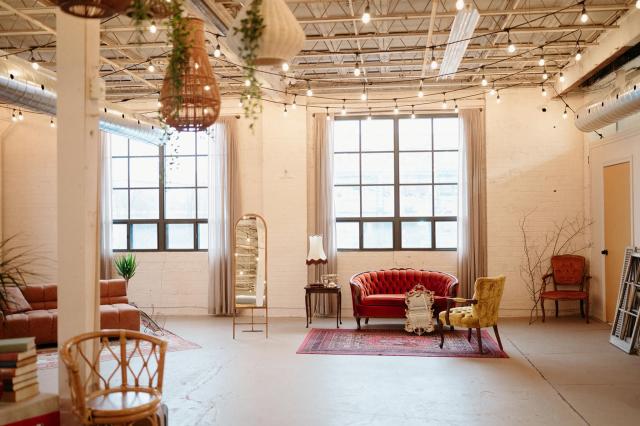Top Workshop Venues in Toronto, ON
Whether you're seeking an intimate space or a grand hall, our top workshop venues in Toronto will surely come in handy. From modern theatres to sleek conference rooms, we're here to guide you to the perfect venue for your event. Whether you're organising a team-building session, a wreath-making class for your friends, or looking for a space to brainstorm in peace, we've got your back! Scroll down to see our list of the best workshop spaces in Toronto, set your requirements, and book the perfect space in just a few minutes!
-
from C$113
hire fee / per hourBook nowSmall Training Room
35 guestsS3PACEHillcrest Village, Toronto, ON#Supervenue
LLp M.
“We got really clear instructions on how to access the rooms independently and everything worked great.” -
from C$65
hire fee / per hourBook nowMultipurpose Studio Space
70 guestsDundas West StudioTrinity-Bellwoods, Toronto, ONBBridget W.
“Everyone was soo nice. Communication was excellent as well. Will definitely book again.” -
from C$50
hire fee / per hourBook nowWorkroom 3-5 pax
5 guestsLAUFT Shops at Don MillsDon Mills, Toronto, ON#Supervenue
NNathan N.
“Nice easy to use meeting room that had what we needed (tv, hdmi, wi-fi, whiteboard, plugs).” -
from C$40
hire fee / per hourBook nowThinkubator
8 guestsThinktank WorkspaceVictoria Village, Toronto, ONCChris K.
“Easy to book, access and communicate with the facility manager.” -
from C$360
hire fee / per hourBook nowActivity Space
130 guestsS3PACEHillcrest Village, Toronto, ON#Supervenue
PPaige P.
“Fiona was so helpful throughout the booking process. Beautiful space, clean and quiet.” -
from C$136
hire fee / per hourBook nowThe United Room
20 guestsThe Professional CentreFinancial District, Toronto, ON#Supervenue
JJc
“Great location, bright room, available receptionist, responsive communication” -
from C$226
hire fee / per hourBook nowLarge Event Space
100 guestsThe Village Hive EglintonMount Pleasant West, Toronto, ON#Supervenue
ZZahra D.
“There was cutlery, a fridge and everything one would need to be able to work in the space.” -
from C$100
hire fee / per hourBook nowIT Classroom
30 guestsMcDonald International AcademyBloor-Yorkville, Toronto, ON#Supervenue
This versatile classroom holds up to 40 participants and is ideal for workshops, presentations, or meetings. It comes fully equipped with Wi-Fi, a projector, flatscreen TV, whiteboard, flipchart, and a PA system with speakers. -
from C$100
hire fee / per hourBook nowClassroom 1
40 guestsMcDonald International AcademyBloor-Yorkville, Toronto, ON#Supervenue
SSarah Z.
“Big space, lots of natural light” -
from C$295
hire fee / per hourBook nowPrivate Event Space
40 guestsThe Professional CentreFinancial District, Toronto, ON#Supervenue
AAlicia A.
“Great communication. Wonderful professional venue. Very easy to work with. Reasonable rates.” -
from C$85
hire fee / per hourBook now"The Colony" Boardroom
30 guestsThe Village Hive Duncan MillSt.Andrew-Windfields, Toronto, ONTToni P.
“Monica was quick to respond to my inquiries and made the process of booking incredibly smooth.” -
from C$35
hire fee / per hourBook nowClassroom 3
18 guestsCCLCSToronto, ON#Supervenue
JJune S.
“I will book here again, for sure.”
- 1
- 2
- 3
- ...
- 9
Popular filters
Capacity
Budget
Area type
Venue type
Catering and drinks
Accessibility features
Secure One of Toronto's Best Small Workshop Spaces
“Very comfortable space. Great to have the tea and coffee. Super friendly team at the venue.”
Pick from Toronto's Affordable Venues for Workshops
“Excellent location and prompt communications. We will book this again.”
“Loved the space, perfect for an-person meeting with my client.”
“Great location and good price”
“Location, supportive personnel, clean/comfortable room”

FAQs about Top Workshop Venues in Toronto, ON
In Toronto, prices of workshop venues average around C$81 hire fee per hour. The exact costs depend on the room size, audiovisual equipment (such as projectors or microphones), or high-speed Wi-Fi. Additional services, such as catering or on-site coordinators, may cost extra. Flexible configurations for presentations, workshops, or networking, along with amenities such as parking or dedicated breakout rooms, will also affect the price. See usual price ranges in Toronto, based on Tagvenue data, as of February 2026:
| From C$54 | to C$100 | hire fee per hour |
| From C$900 | to C$2000 | hire fee per event |
| From C$1500 | to C$1735 | hire fee per day |
Based on the popularity and user ratings on Tagvenue (updated February 2026), the best options include:
-
Small Training Room at S3PACE in Hillcrest Village - rated 5/5
Our user said: ‘Great space, easy to connect to wifi and the large screen, access to whiteboard.’ -
Large Event Space at The Village Hive Eglinton in Mount Pleasant West - rated 4.9/5
Our user said: ‘The furniture was a very nice surprise, given the images show an empty room.’ -
The United Room at The Professional Centre in Financial District - rated 4.8/5
Our user said: ‘Responsiveness, ease of tech use, clean and professional space.’
You'll find workshop venues in various sizes, from smaller spots to larger venues; keep in mind that the type of space and your chosen layout will affect the capacity! Below you can see the typical venue sizes in Toronto, together with the standard prices in each size range, based on Tagvenue data (February 2026):
| Small | up to 5 guests | prices average C$50 hire fee per hour |
| Medium | between 10 and 25 guests | prices average C$85 hire fee per hour |
| Large | over 30 guests | prices average C$100 hire fee per hour |
These are the venues within 650 m from central Toronto, available to book on Tagvenue:
-
Serene Downtown Event Space at The Morpheus Clinic for Hypnosis
on 49 Elm Street - 500 m from centre.
Venue said: Host your next event in a serene, 20-seat venue located inside The Morpheus Clinic for Hypnosis, at 49 Elm Street in the heart of downtown Toronto. Our 650 sq. -
Versatile Event Space at Startuptive
on 123 Edward St (2nd Floor), Toronto, ON 123 - 650 m from centre.
Our user said: ‘The Wi-Fi was fast and reliable, which was crucial for our video calls and collaborative work sessions.’ -
The United Room at The Professional Centre
on 120 Adelaide Street West Suite 2500 - 650 m from centre.
Our user said: ‘Responsiveness, ease of tech use, clean and professional space.’
Toronto is full of great venues, especially ones suitable for workshops. Downtown Toronto, particularly around the Financial District and Entertainment District, is renowned for its range of professional and modern workshop spaces. The Distillery District also offers unique and historic venues, which will be perfect if you’re organising creative workshops. Queen West and The Annex are great choices for more eclectic and artsy spaces, suitable for a variety of workshop styles.
You may find more fantastic spaces in the city centre, around Kensington Market and Old Town. Fashion District, a prestigious and trendy area within Old Toronto, is home to venues ideal for creative and active workshops, as well as meetings and conferences. Just across from greater Toronto you can find the Toronto Islands, where plentiful workshop venues can be found.
No two venues are the same, so each venue has something different to offer. Workshop spaces vary from ones suitable for physical or creative activities as well as meetings, conferences and training. Workshop venues usually provide some basic equipment such as tables, chairs, a projector or a flat-screen TV. Some will also offer kitchen spaces and lounge areas.
Most workshop spaces in Toronto offer equipment rental options, including audio-visual systems, projectors, and microphones. Sometimes even specialised equipment like recording devices or photography gear is available for rent at an additional price. Make sure to reach out to the venue manager to confirm the availability and costs of the equipment you need.
Your Guide to Renting Workshop Venues in Toronto, ON
Toronto’s motto, “Diversity Our Strength,” couldn’t be more fitting. This multicultural city is full of creative energy and people eager to learn something new. If you’re planning a hands-on art class, a corporate seminar, or a wellness session, finding the right space is key to running a great workshop.
Workshops work best when the space is just right. Your chosen venue should be easy to get to, sized for your group, and equipped for your needs. Here's what to keep in mind when booking a workshop venue in Toronto.
How to Choose the Right Workshop Venue
Location matters: Choose a space that’s easy to reach by TTC or has parking nearby. Popular areas like the Downtown Core, Kensington Market, and the Distillery District are great for foot traffic and creative energy.
Size & layout: Keep your group size in mind. Smaller workshops (under 20 people) work well in studios, cafes, or private rooms. For larger groups, look for venues with flexible layouts or breakout areas.
Equipment & amenities
Think about what you’ll need:
- Projectors, screens, and whiteboards for business or training workshops
- Tables, sinks, and good lighting for art or craft sessions
- Sound systems, mirrors, and AC for dance or fitness classes
- Access to Wi-Fi and plenty of power outlets
Setup & flow: A good venue should allow enough space for people to move around comfortably and collaborate. Ask if the space is set up for different seating styles (theatre, boardroom, classroom, etc.).
Budgeting Tips for Workshop Venues
Workshops don’t have to be expensive. Here are some ways to manage costs and stay within your budget.
- Look for minimum spend venues where the cost can go toward food and drinks.
- Flat-fee venues might be more affordable if you don’t need catering.
- Always factor in extras like AV rentals, staff fees, or cleaning charges.
- Booking on weekdays or during off-peak hours can save you money.
Toronto Workshop Venue Ideas
Not sure where to start? Here are some top-rated workshop venues in Toronto available on Tagvenue and great for everything from creative sessions to business training.
- Startuptive, Bay Street Corridor: A bright, modern space that can hold up to 100 people, perfect for business workshops, team meetings, or speaker events. Flexible layout, great tech setup, and available by the hour.
- Sorry Studio, Liberty Village: This trendy, open-concept space works well for creative workshops, photo shoots, or group sessions. It’s spacious and full of natural light, with a relaxed, artistic vibe.
- Foy House, The Village: A quiet, cozy space ideal for small workshops or one-on-one coaching sessions. With space for 12 and rates starting from just C$50/hour, it’s a great low-cost option.
- Learner First Studio, Crescent Town: This well-equipped studio can seat up to 30 people and is perfect for training sessions or educational classes. It has everything you need to run an organized and professional event.
- Ballroom Expressions Dance Studio, Mount Dennis: Hosting a movement-based workshop? This large studio fits up to 150 people and is a great choice for dance, fitness, or wellness events with plenty of open space and mirrors.
Outdoor Workshop Venues in Toronto
Want to take your workshop outside? For a wellness class, creative session, or team activity, these venues have outdoor space or open, airy setups that are great for fresh-air events.
- Rily Kitchen, Dovercourt-Wallace Emerson-Junction: This cozy space has both indoor and outdoor areas, making it great for cooking classes or small group meetups. It has a laid-back vibe that works well for relaxed, hands-on workshops.
- Miraki Life Workspace, Roncesvalles: A calm and modern space with access to outdoor areas—perfect for mindfulness sessions, writing groups, or creative events. It’s quiet, comfortable, and away from the busy downtown.
- S3PACE, Hillcrest Village: The biggest room here opens up to outdoor space, so it's great if you want fresh air while still having access to indoor comfort. Good for fitness, art, or group activities.
- LAUFT Shops at Don Mills, Don Mills: This spot is small but super flexible. You can set up outside when the weather’s nice or use it for outdoor prep work before heading inside. Great for one-on-one coaching or mini classes.
People also search for
Workshop Venues in Ontario
Workshop Venues in other cities
Verified Reviews of Workshop Venues in Toronto, ON
Page last updated in February 2026
To provide you with relevant information, our pages are refreshed using an algorithm that aggregates real-time data, including bookings, reviews, and venue updates.

